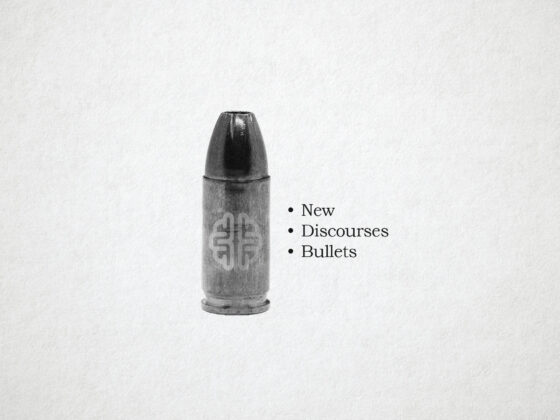The New Discourses Podcast with James Lindsay, Episode 96
We all know academia is in trouble. In fact, we’re not even sure it can be saved. To put it simply, the university is dying. To be sure, it’s a strange death, however, because the university is in some sense going back to its roots, returning to being theological seminaries, though in a completely new religion. That religion is the transformative religion of Dialectical Leftism, and its materialist watchword in the 21st century is “Sustainability.” In this New Discourses Podcast series, host James Lindsay takes the listener through a 2022 UNESCO book, Knowledge-driven Actions: Transforming Higher Education for Global Sustainability, that calls upon all “higher education institutions” to transform themselves so that they align, promote, and help complete the United Nations 17 Sustainable Development Goals as a part of the 2030 Agenda.
In this episode of the series, host James Lindsay takes the listener through the first chapter, the introduction, to this manipulative UNESCO document. Sustainability is made out clearly to be a cult-religious concept, a new theological object to bind and orient the university so that the Neo-Communist agenda can be accomplished through it. Sustainability will come to guide how institutions think, operate, research, and teach, and they will serve as beacons for this new faith to the communities around them. Sustainability is to become our “New Sensibility,” just like Herbert Marcuse called for in the second chapter of his 1969 Essay on Liberation. Sustainability as the tyranny of the 21st century is to become the mode and model for all institutions of higher education, including colleges, universities, seminaries, and more. Join James to hear about how the universities are to be transformed into the cathedrals of this new backwards cult religion.
Part 1: The Red Thread
Part 3: The Strange Death of Science
Part 4: The Strange Death of Knowledge
Subscribe to the New Discourses Podcast on SoundCloud, Apple Podcasts, Google Podcasts, Spotify, Stitcher, YouTube, or by RSS.
Additional episodes of the New Discourses Podcast are available here.
Follow James Lindsay: https://linktr.ee/conceptualjames









3 comments
In 1991 the leaders of the Club of Rome published a book titled “The First Global Revolution”, which basically was the main ideas in Herbert Marcuse’s major works concentrated into roughly 180 pages with a little bit of Science thrown in the mix, and became one of the books that laid out under the term The Great Transition plans for global development up until our current The Great Reset. Well on top of that, on page 75 at the end of a chapter where they ponder over how to scare people into submission not that the Soviet Union has collapsed, they write: “In searching for a common enemy against whom we can unite, we came up with the idea that pollution, the threat of global warming, water shortages, famine and the like, would fit the bill. In their totality and their interactions these phenomena do constitute a common threat which must be confronted by everyone together. But in designating these dangers as the enemy, we fall into the trap, which we have already warned readers about, namely mistaking symptoms for causes. All these dangers are caused by human intervention in natural processes, and it is only through changed attitudes and behaviour that they can be overcome. The real enemy then is humanity itself.”
Thanks, James.
On Marcuse, if you are going to review Marcuse’s work, skip Eros and One Dimensional Man: too long, too esoteric, somewhat dated(!) Repressive Tolerance, on the other hand is, as you know, short and gives the relevant details on What is to be Done. Although Marcuse’s body lies a moldering in the grave, his spirit marches on in this now little studied work.
I remarked in class once how cowardly Marcuse was, leaning so heavily on Heidegger but never (almost never: I found one footnote) crediting him. One very bright student observed that, since Heidegger was persona non grata, Marcuse elected to credit Freud (politically acceptable) as the source of his inspiration. Marcuse’s dismissal of logos is an essentially Heideggerian theme. Eros simply substitutes for the Being of Beings.
Marcuse, thus, turned Freud into an acceptable version of Heidegger. I suspect Marcuse was also indebted to Carl Schmitt but, for the same politically correct reason, fails to cite him. Marcuse is quite deceptive regarding his genuine beliefs. It is of importance to note Marcuse’s involvement in American intelligence operations in Europe after WW 2.
Thank you, great dissertation. God bless you and your work.
Julio Rodriguez REM,CEA
Consultant